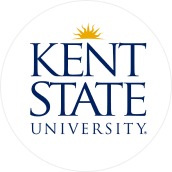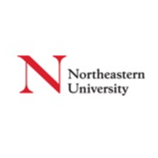
Home > Study in USA > Kent State University > Master of Public Health
Master of Public Health
 Kent State University, USA
Kent State University, USA

USD 19954
Annual Tuition Fee

USD 70
Application Fee

24 months
Duration

6.5
IELTS

79
TOEFL

65%
Min GPA
Program Overview
The Master of Public Health degree in Public Health is designed to help students develop real-world knowledge and skills needed to pursue success in the public health industry.
The Public Health major comprises the following concentrations:
- The Biostatistics concentration prepares students in the quantitative science of health data collection, storage, retrieval, analysis and interpretation. Graduates are equipped to use statistical methods to design and analyze health-related surveys and experiments for improving health. The college’s faculty research interests include applying biostatistical analysis to understand critical health problems. Graduates in biostatistics are in demand at hospitals, pharmaceutical companies, state and local health departments, federal health agencies and biotechnology companies to analyze the effectiveness of new drugs and interventions, identify risk factors for disease and develop effective prevention strategies.
- The Epidemiology concentration prepares students to analyze the distribution and determinants of disease, disabilities and death in populations. Graduates are able to apply quantitative and qualitative methods to investigate disease outbreaks, determine causal relationships between environmental and biological factors, and conduct studies to project health trends in populations. Students benefit from public health faculty research agendas in bio-preparedness, public health surveillance systems, chronic disease, cancer and infectious disease epidemiology. Career opportunities for graduates include research positions in universities, medical schools and pharmaceutical companies; disease prevention specialists in hospitals; and surveillance managers in state and local health departments.
- The Health Policy and Management concentration prepares students to address public health risks and develop effective health services delivery models. This concentration incorporates health services research, health policy analysis and health care planning and management. Given the active research of the college’s faculty in identifying service gaps and in developing evidence-based practices and policy analysis, students emerge with strong skills in health services management, alternative models of service financing and strategies for improving services. Career opportunities for graduates include administrative and management positions in hospitals, clinics, state and local health departments, nursing homes and mental health facilities; policy analyst positions in health planning organizations and governmental agencies; and planning and management positions in health maintenance organizations and health insurance companies.
- The Social and Behavioral Sciences concentration provides students with an interdisciplinary approach to improve health in populations across the life course. Students learn to apply theoretical principles to design, implement and evaluate effective programs that include behavioral and environmental approaches. Graduates are able to design and evaluate public health interventions intended to improve health for families, workplaces, communities and other settings. The active research of the college’s faculty—particularly in the areas of childhood obesity, violence and injury prevention, substance abuse prevention and chronic disease prevention—provides students the opportunity to work on large-scale externally funded prevention research. Students are prepared for careers in health promotion; program design and evaluation; and prevention program development for state and local health departments, workplace health promotion programs, hospitals, international health agencies, mental health centers and non-profit organizations.
Program Learning Outcomes
Graduates of this program will be able to:
- Explain public health history, philosophy and values
- Identify the core functions of public health and the 10 Essential Services
- Explain the role of quantitative and qualitative methods and sciences in describing and assessing a population’s health
- List major causes and trends of morbidity and mortality in the US or other community relevant to the school or program
- Discuss the science of primary, secondary and tertiary prevention in population health, including health promotion, screening, etc.
- Explain the critical importance of evidence in advancing public health knowledge
- Explain effects of environmental factors on a population’s health
- Explain biological and genetic factors that affect a population’s health
- Explain behavioral and psychological factors that affect a population’s health
- Explain the social, political and economic determinants of health and how they contribute to population health and health inequities
- Explain how globalization affects global burdens of disease
- Explain an ecological perspective on the connections among human health, animal health and ecosystem health (eg, One Health)
- Apply epidemiological methods to the breadth of settings and situations in public health practice
- Select quantitative and qualitative data collection methods appropriate for a given public health context
- Analyze quantitative and qualitative data using biostatistics, informatics, computer-based programming and software, as appropriate
- Interpret results of data analysis for public health research, policy or practice
- Compare the organization, structure and function of health care, public health and regulatory systems across national and international settings
- Discuss the means by which structural bias, social inequities and racism undermine health and create challenges to achieving health equity at organizational, community and societal levels
- Assess population needs, assets and capacities that affect communities’ health
- Apply awareness of cultural values and practices to the design or implementation of public health policies or programs
- Design a population-based policy, program, project or intervention
- Explain basic principles and tools of budget and resource management
- Select methods to evaluate public health programs
- Discuss multiple dimensions of the policy-making process, including the roles of ethics and evidence
- Propose strategies to identify stakeholders and build coalitions and partnerships for influencing public health outcomes
- Advocate for political, social or economic policies and programs that will improve health in diverse populations
- Evaluate policies for their impact on public health and health equity
- Apply principles of leadership, governance and management, which include creating a vision, empowering others, fostering collaboration and guiding decision making
- Apply negotiation and mediation skills to address organizational or community challenges
- Select communication strategies for different audiences and sectors
- Communicate audience-appropriate public health content, both in writing and through oral presentation
- Describe the importance of cultural competence in communicating public health content
- Perform effectively on interprofessional teams
- Apply systems thinking tools to a public health issue
Additional Information
Program Level Master's Degree
College/University Processing Time 30 Days
Program Format Full-Time
Optional Practical Training (OPT) 
General Admission Requirement
Academic Requirement
- Minimum Level of Education Required: To be accepted into this program, applicants must have a Bachelor's Degree.
Similar Programs


Northeastern University - Boston Campus
Intake Jan 2026, Sep 2025
Jan 2025, Jul 2025, Sep 2024

Application Fee

Duration
Test Score
6.5
IELTS
90
TOEFL
75
Min GPA


Northeastern University - Boston Campus
Intake Jan 2026, Sep 2025
Jan 2025, Jul 2025, Sep 2024

Application Fee

Duration
Test Score
6.5
IELTS
90
TOEFL
75
Min GPA


Northeastern University - Boston Campus
Intake
Jul 2025, Sep 2025, Sep 2024

Application Fee

Duration
Test Score
7
IELTS
100
TOEFL
75
Min GPA


Northeastern University - Boston Campus
Intake
Jul 2025, Sep 2025, Sep 2024

Application Fee

Duration
Test Score
7
IELTS
100
TOEFL
75
Min GPA


Northeastern University - Boston Campus
Intake Jan 2026, Sep 2025
Jan 2025, Apr 2025, Jul 2025, Sep 2024

Application Fee

Duration
Test Score
6.5
IELTS
79
TOEFL
65
Min GPA


Northeastern University - Boston Campus
Intake Jan 2026, Sep 2025
Jan 2025, Apr 2025, Jul 2024, Jul 2025, Sep 2024

Application Fee

Duration
Test Score
6.5
IELTS
79
TOEFL
65
Min GPA


Northeastern University - Boston Campus
Intake Jan 2026, Sep 2025
Jan 2025, Apr 2025, Jul 2024, Jul 2025, Sep 2024

Application Fee

Duration
Test Score
6.5
IELTS
79
TOEFL
65
Min GPA


Northeastern University - Boston Campus
Intake Jan 2026, Sep 2025
Jan 2025, Apr 2025, Jul 2024, Jul 2025, Sep 2024

Application Fee

Duration
Test Score
6.5
IELTS
79
TOEFL
65
Min GPA


Northeastern University - Boston Campus
Intake Jan 2026, Sep 2025
Jan 2025, Apr 2025, Jul 2024, Jul 2025, Sep 2024

Application Fee

Duration
Test Score
6.5
IELTS
79
TOEFL
65
Min GPA


Northeastern University - Boston Campus
Intake Jan 2026, Sep 2025

Application Fee

Duration
Test Score
6.5
IELTS
79
TOEFL
65
Min GPA


Northeastern University - Boston Campus
Intake Jan 2026, Sep 2025

Application Fee

Duration
Test Score
6.5
IELTS
79
TOEFL
65
Min GPA


Northeastern University - Boston Campus
Intake Jan 2026, Sep 2025

Application Fee

Duration
Test Score
6.5
IELTS
79
TOEFL
65
Min GPA


Northeastern University - Boston Campus
Intake Jan 2026, Sep 2025

Application Fee

Duration
Test Score
6.5
IELTS
79
TOEFL
65
Min GPA


Northeastern University - Boston Campus
Intake Jan 2026, Sep 2025

Application Fee

Duration
Test Score
6.5
IELTS
79
TOEFL
65
Min GPA


Northeastern University - Boston Campus
Intake Jan 2026, Sep 2025

Application Fee

Duration
Test Score
6.5
IELTS
79
TOEFL
65
Min GPA


Northeastern University - Boston Campus
Intake Jan 2026, Sep 2025
Jan 2025, Apr 2025, Jul 2024, Jul 2025, Sep 2024

Application Fee

Duration
Test Score
6.5
IELTS
79
TOEFL
65
Min GPA


Northeastern University - Boston Campus
Intake Jan 2026, Sep 2025
Jan 2025, Apr 2025, Jul 2025, Sep 2024

Application Fee

Duration
Test Score
6.5
IELTS
79
TOEFL
65
Min GPA


Northeastern University - Boston Campus
Intake Jan 2026, Sep 2025
Jan 2025, Apr 2025, Jul 2024, Jul 2025, Sep 2024

Application Fee

Duration
Test Score
6.5
IELTS
79
TOEFL
65
Min GPA


Northeastern University - Boston Campus
Intake Jan 2026, Sep 2025
Jan 2025, Apr 2025, Jul 2024, Jul 2025, Sep 2024

Application Fee

Duration
Test Score
6.5
IELTS
79
TOEFL
65
Min GPA


Northeastern University - Boston Campus
Intake Jan 2026, Sep 2025
Jan 2025, Apr 2025, Jul 2024, Jul 2025, Sep 2024

Application Fee

Duration
Test Score
6.5
IELTS
79
TOEFL
65
Min GPA
Tuition Fee
The values given below are estimated figures, excluding extra charges like material fee, student activity fees, athletic fees, health care, etc., for courses. To know more, please visit the Programs page.
Average Tuition Fee Per Year
19954
Tuition Fee
(USD)
USD 70
Application Fee
(USD)
13440 Per year
Average Cost of Living
(USD)
The living costs include the total expenses per month, covering accommodation, public transportation, utilities (electricity, internet), books and groceries.
Check program website for more information about funding options.
Scholarships
Scholarships & Aid
KSU awarded over $1,000,000 to international students las year
Athletic Scholarships
Scholarships Universie
Global Scholarship
- Renewable up to 4 years/8 semesters
- Based on US 4.0 scale GPA at time of admission.
- Up to $17,000/year
- No separate application required
- Strict admissions deadline.
|
Admissions GPA (high school or college, on US 4.0 scale) |
Annual Global Scholarship |
| Admitted to Honors College | $15,000 + $2,000 Honors Scholarship |
| 3.70+ | $12,000 |
| 3.60-3.69 | $10,000 |
| 3.50-3.59 | $7,000 |
| 3.49 and below | $4,300 |
Not sure what you are looking for?
Don’t worry, we are here to help.
Popular Universities to Study Abroad
World class education waiting for you.

Ohio, USA • 19 Programmes
Tuition Fee : USD 24500 - 25000 / year
.png)
Ohio, USA • 43 Programmes
Tuition Fee : USD 37000 - 37500 / year

Ohio, USA • 128 Programmes
Tuition Fee : USD 44000 - 48000 / year
.png)
Ohio, USA • 62 Programmes
Tuition Fee : USD 53000 - 54000 / year

Top Places To Study In Canada
Province wise Popular university and colleges for Studying abroad.
- Universities in Alabama
- Universities in Alaska
- Universities in Arizona
- Universities in Arkansas
- Universities in California
- Universities in Colorado
- Universities in Connecticut
- Universities in Delaware
- Universities in District of Columbia
- Universities in Florida
- Universities in Georgia
- Universities in Guyana
- Universities in Hawaii
- Universities in Illinois
- Universities in Indiana
- Universities in Iowa
- Universities in Kansas
- Universities in Kentucky
- Universities in Louisiana
- Universities in Maine
- Universities in Maryland
- Universities in Massachusetts
- Universities in Michigan
- Universities in Minnesota
- Universities in Mississippi
- Universities in Missouri
- Universities in Montana
- Universities in Nebraska
- Universities in Nevada
- Universities in New Hampshire
- Universities in New Jersey
- Universities in New York
- Universities in North Carolina
- Universities in Ohio
- Universities in Oklahoma
- Universities in Oregon
- Universities in Other Any where
- Universities in Pennsylvania
- Universities in Rhode Island
- Universities in South Carolina
- Universities in South Dakota
- Universities in Tennessee
- Universities in Texas
- Universities in Utah
- Universities in Vermont
- Universities in Virginia
- Universities in Washington
- Universities in West Virginia
- Universities in Wisconsin
- Universities in Wyoming
Popular English Language Proficiency Exams
Blogs and Articles
Study in USA Blogs & Articles
Updated on • May 15,2025 05:23 PM IST • USA
Master's in Computer Science in the USA
Updated on • Apr 08,2025 05:59 PM IST • USA
Updated on • Mar 11,2025 01:18 PM IST • USA
Updated on • May 22,2025 04:20 PM IST • USA
Updated on • Jan 21,2025 05:46 PM IST • USA
Updated on • Jan 16,2025 03:32 PM IST • USA
Updated on • Dec 31,2024 12:39 PM IST • USA
Exams Required to Study in USA
Updated on • Dec 31,2024 12:44 PM IST • USA
Masters in Project Management in USA
Updated on • Nov 26,2024 01:15 PM IST • USA
Updated on • Nov 25,2024 03:33 PM IST • USA
How to Get a Job in USA in 2025
Updated on • May 20,2025 05:20 PM IST • USA
Updated on • Jul 12,2024 05:59 PM IST • USA
Cost of Living in USA for Indian Students
Updated on • Jun 07,2024 05:57 PM IST • USA
Updated on • Jun 05,2024 04:27 PM IST • USA
1 Year Master of Science (MS) in USA
Updated on • May 30,2024 05:51 PM IST • USA
How to Get a Job in USA as an Indian Student?
Updated on • May 28,2024 01:22 PM IST • USA
Top MBA Programs in USA in 2024
Updated on • May 23,2024 05:56 PM IST • USA
Crack Your F1 US Student Visa Interview with Ease
Updated on • May 17,2024 01:43 PM IST • Study in Ireland
Updated on • May 03,2024 04:23 PM IST • USA
Master of Engineering Management in USA: Universities, Eligibility Criteria, Scholarships
Updated on • Mar 14,2024 03:42 PM IST • USA









